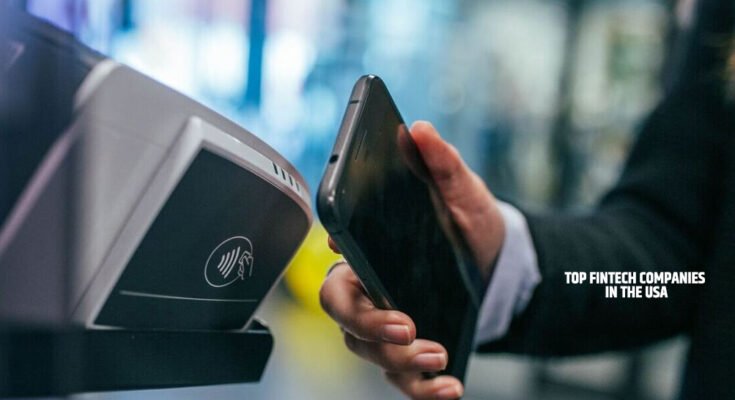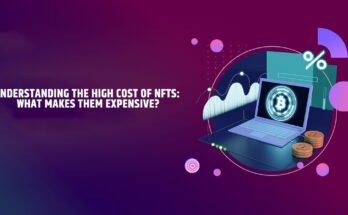The most powerful privately held firms in the fintech sector grew during the previous year, but falling investment in the industry portends rough seas.
A sad year is emerging for fintech. Private fintech businesses are already rushing to minimize expenses and stretch the capital they have to avoid needing to acquire additional money at a lower valuation (known as a “down round”) after a carnival of new unicorns mega-funding rounds in 2021. Their anxiety is justified.
Venture capitalists are slowing down funding for fintech startup companies as publicly traded companies have dropped 50% since November; according to a report by data provider C.B. Insights, U.S. fintech raised $13.3 billion during the first quarter of 2022, a 27% decrease compared to that same period last year. The median value of late-stage American fintech that raised money in the first quarter of 2022 was $1.9 billion, which is 58% less than the median valuation of late-stage American fintech that raised money in the fourth quarter of 2021, the research claims.
However, the transition to so much online buying and banking has been expedited by the epidemic, which has made for one heck of a rollercoaster. The average market capitalization of America’s ten largest private fintech businesses was $9 billion in February 2020, right before Covid-19 arrived in the country, while the threshold for inclusion was $3.7 billion. These figures have quadrupled for our 2022 list, with an average value of $27.7 billion and a cutoff of $12 billion. If these record values represent a bubble set to burst or if they are sustainable after a pause, future investment rounds will reveal this.
Half of the ten fintech companies on the 2020 10 most valuable list—including Robinhood—have since gone public. The free stock trading software went public in July of last year for $35 and reached a high of $55. Its current market valuation of $8 billion, or a 30% decrease from its value as a private firm in 2021, is based on its current trading price of just $9.
The third-most valuable private fintech company operating in the United States and the most significant addition to the 2022 list is the crypto trading exchange FTX, which is now valued at $32 billion after becoming a unicorn less than a year ago. Also new to our ranks is the $13 billion NFT trading platform OpenSea.
Here are the top private American fintech companies this year.
Stripe: $95.9 billion
Since its inception in 2011, Stripe has assisted companies of all sizes with processing online payments, obtaining business financing, and automatically calculating and collecting sales taxes. With a $95 billion value raised in a 2021 Series H round, the business is still the most valuable private fintech in the United States. It is the world’s fourth most valuable private company, after TikTok owner Bytedance, Elon Musk’s SpaceX, and Chinese fast fashion retailer SHEIN. A 60% increase from 2020, Stripe processed $640 billion in payments last year. Click here to learn more about Stripe.
Klarna: $46 billion
The company Klarna, which invented the buy-now-pay-later business model, bet on consumers who would stop using credit cards but still need a method to pay over time. Through the app, customers can purchase everything from Nike footwear to Sephora lipsticks and select whether to arrange interest-free installments in advance or pay in full at checkout. Most of the company’s income comes from charging retail partners for payment processing and affiliate marketing services. According to reports, Klarna is attempting to raise $1 billion in a down round, which may bring the company’s valuation down to about $30 billion.
FTX: $32 billion
FTX, one of the biggest cryptocurrency exchanges in the world, obtained $1.5 billion in private capital last year, which helped to propel its valuation from $1.2 billion to $25 billion. Following financing of $500 million in January, its worth soared to $32 billion. The Bahamas-based business manages around 11% of the $2.4 trillion in monthly global derivatives trades. As it pursues American clients through a new organization, FTX US, valued at $8 billion, FTX is spending millions of dollars on marketing and hiring celebrities as brand ambassadors, including Tom Brady, David Ortiz, and Kevin O’Leary.
Chime: $25 billion
The largest digital bank in the U.S., Chime, became well-liked by offering its clients free checking accounts with no overdraft fees and cash advances. A person who knew the situation said that Chime planned to go public early this year but postponed the IPO due to a volatile stock market. In comparison to any previous quarter in the bank’s ten-year existence, according to CEO Chris Britt, Chime added more new clients in the first quarter of 2022.
Ripple: $15 billion
Using blockchain technology and its specialized cryptocurrency, XRP, Ripple makes it easier to send money abroad. More than 300 institutional clients use the company’s services, including Standard Chartered, Santander, and MoneyGram, which use Ripple for 10% of its international transactions to Mexico. For allegedly making unlawful securities offers by selling XRP, the SEC is suing Ripple. After the litigation is resolved, according to CEO Brad Garlinghouse, he could think about going public with the business.
Blockchain.com: $14 billion
The British cryptocurrency exchange is the most well-known cryptocurrency wallet in the world, allowing users to manage their private keys for many currencies. California is now among the 35 states it may now service, thanks to its expansion into the United States. With 83 million wallets and more than $1 trillion in transactions since its introduction, the business founded in 2011 says that one-third of all bitcoin transactions worldwide take place on Blockchain.com.
Plaid: $13.4 billion
Plaid, founded in 2012, enables seamless payments and deposits by assisting fintech applications like Venmo and Coinbase in connecting to users’ bank accounts. Plaid paid $250 million earlier this year to purchase identity verification and KYC (know your customer) compliance firm Cognito. By the end of 2021, Plaid has increased its client base from around 4,500 in late 2020 to 6,300.
Optiver
Market maker and proprietary trader Optiver deals in a variety of financial products that are listed on exchanges. Its name is derived from the Dutch word “options dealer” or “Optiver handelaar.” The business is privately held. Currency-traded funds, cash stocks, listed derivatives, bonds, and foreign exchange are all traded through Optiver. Exemplary leadership and culture. The business values fair treatment of its workers and upholds excellent work-life harmony. The most difficult thing is staying up since they employ good individuals and move swiftly. The idea of “work hard, play hard” appealed to me.
Open Sea: $13.3 billion
OpenSea, a peer-to-peer platform where users may build, trade, buy, and sell NFTs, is one of the great winners in the NFT boom of 2021. The business, established over five years ago, retains a 2.5% share of every sale and processes around $3 billion in NFT transactions each month, generating about $75 million in income each month. OpenSea continues to dominate the NFT industry, with over 1.5 million accounts transacting on the platform. Still, major rivals like Coinbase, which launched its NFT exchange in May, are working to close the gap.
Brex: $12 billion
a group of corporate banking products, Brex offers corporate credit cards with no account fees, built-in spending tracking, and FDIC-insured cash management accounts for businesses. Its web dashboard provides tools for managing expenses and streamlines bill-paying for enterprises. In August, the San Francisco-based business introduced a loan service for venture-backed digital companies. In April, it made its biggest purchase by investing $90 million in a startup that develops software to assist customers with budgeting and financial forecasting. Included among its tens of thousands of clients are ClassPass, Airbnb, and Carta.
GoodLeap: $12 billion
California-based Making green home improvements are made simpler for users by GoodLeap. Through partner banks, such as Goldman Sachs, it has provided $13 billion in financing to around 380,000 homeowners—half of that only in the last year. These banks issue the loans and then securitize the debt to sell to investors while utilizing their algorithms to monitor loan performance. Contractors and suppliers use the point-of-sale software from GoodLeap to authorize project financing for solar panel installation rapidly and, as of last year, more than 20 other categories of sustainable upgrades, such as battery storage, energy-efficient windows, and grass that uses less water.
OfBusiness
A tech-enabled platform called OFB Tech (OfBusiness) makes it easier for SMEs to get finance and raw materials, emphasizing the manufacturing and infrastructure sectors. It incorporates technology into the purchasing practices of SMEs to provide clients with better items at better costs and in greater timeliness, together with thorough online and offline assistance. Metals, chemicals, polymers, agricultural products, petrochemicals, and construction materials are important raw materials. Through its NBFC “Oxyzo Financial Services,” OfBusiness offers SMEs access to cash flow-based finance to purchase raw materials. The company also provides a wide range of digital services for SMEs, such as bassists for new growth prospects.
Perfios
Leading product technology company Perfios works with businesses to collect structured and unstructured data, curate it, analyze it, and utilize it to inform choices. The product solutions from Perfios help companies create vertical apps for various industries. Over 100 major clients, including banks, NBFCs, digital lending platforms, mutual fund companies, insurance companies, and human resources, have signed on with Perfios in the past nine years, both in India and abroad.








